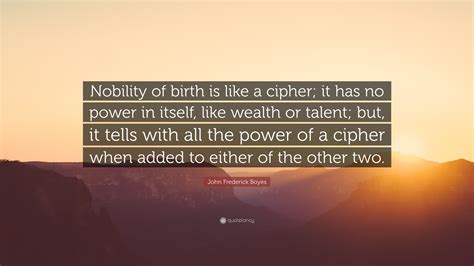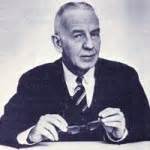A Quote by Anthony Trollope
The property of manliness in a man is a great possession, but perhaps there is none that is less understood, which is more generally accorded where it does not exist, nor more frequently disallowed where it prevails.
Related Quotes
It is frequently the tragedy of the great artist for example Vincent Van Gogh, as it is of the great scientist, that he frightens the ordinary man. If he is more than a popular story-teller it may take humanity a generation to absorb and grow accustomed to the new geography with which the scientist or artist presents us. Even then, perhaps only the more imaginative and literate may accept him. Subconsciously the genius is feared as an image breaker; frequently he does not accept the opinions of the mass, or man's opinion of himself.
After a study of some forty years and more of the great religions of the world, I find none so perfect, none so scientific, none so philosophic, and none so spiritual as the great religion known by the name of Hinduism. The more you know it, the more you will love it; the more you try to understand it, the more deeply you will value it
What does labor want? We want more schoolhouses and less jails; more books and less arsenals; more learning and less vice; more leisure and less greed; more justice and less revenge; in fact, more of the opportunities to cultivate our better natures, to make manhood more noble, womanhood more beautiful, and childhood more happy and bright.
But avarice and ambition in the rich, in the poor the hatred of labour and the love of present ease and enjoyment, are the passions which prompt to invade property, passions much more steady in their operation, and much more universal in their influence. Wherever there is great property there is great inequality. For one very rich man there must be at least five hundred poor, and the affluence of the few supposes the indigence of the many.
Five years of Prohibition have had, at least, this one benign effect: they have completely disposed of all the favorite arguments of the Prohibitionists. None of the great boons and usufructs that were to follow the passage of the Eighteenth Amendment has come to pass. There is not less drunkenness in the Republic, but more. There is not less crime, but more. There is not less insanity, but more. The cost of government is not smaller, but vastly greater. Respect for law has not increased, but diminished.
No Man has a more perfect reliance on the all-wise and powerful dispensations of the Supreme Being than I have, nor thinks his aid more necessary...The man must be bad indeed who can look upon the events of the American Revolution without feeling the warmest gratitude towards the great Author of the Universe whose divine interposition was so frequently manifested in our behalf....In war He directed the sword, and in peace, He has ruled in our councils.
A little more kindness, A little less speed, A little more giving, A little less greed, A little more smile, A little less frown, A little less kicking, A man while he's down, A little more "We", A little less "I", A little more laugh, A little less cry, A little more flowers, On the pathway of life, And fewer on graves, At the end of the strife.







































